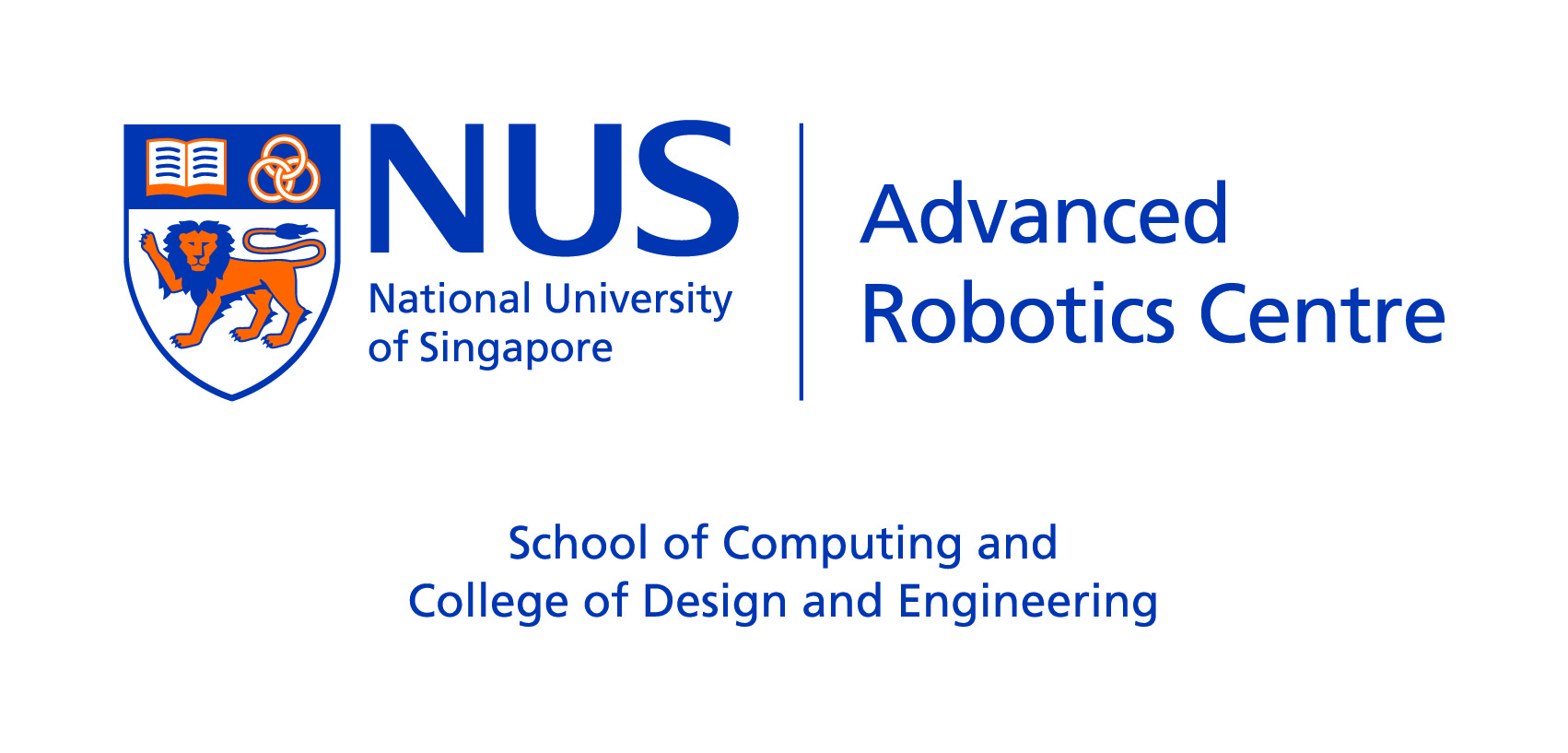Robotics@Lunchtime 9 Oct 2015
Lunctime Details
| Date & Time | October 9, 2015 @ 12:00 pm to 1:30 pm | |
| Seminar Venue | NUS Faculty of Engineering, Lecture Theatre 1 (LT1) |
Summary
Mid-ranging Control of a Macro/mini Manipulator
Ma Zheng
Learning Dynamic Robot-to-Human Object Handover from Human Feedback
Andras Kupcsik
Engineering Autonomous Underwater Vehicles from ground up: A student team’s learning journey
Grace Chia
Please register your attendance at the following link by 5 October 2015:
http://goo.gl/forms/Gj3gszB5w5
Lunch will be provided.
Mid-ranging Control of a Macro/mini Manipulator
Mid-ranging control is an established control approach developed for systems with more than one manipulated inputs controlling a single target output. In this talk, the application of a mid-ranging control approach, Valve Position Control (VPC), in the control of a macro/mini manipulator is presented and discussed. The results from simulation studies show that the macro/mini combination, under VPC, was able to achieve accurate and fast position tracking while having the advantage of the larger workspace of the macro. An Enhanced VPC approach is proposed which can effectively decouple the output of the macro/mini manipulator from changes to the setpoint input to the mini.
Ma Zheng is a research engineer, as well as a Ph.D candidate in Department of Mechanical Engineering. Currently she is working on an A*STAR-funded Industrial Robotics Project to develop and control a multi-axis end-effector module which is expected to achieve high control bandwidth and dynamic response, and high resolution in force control applications in robotic finishing.
Learning Dynamic Robot-to-Human Object Handover from Human Feedback
Object handover is a basic, but essential capability for robots interacting with humans in many applications, e.g., caring for the elderly and assisting workers in manufacturing workshops. It appears deceptively simple, as humans perform object handover almost flawlessly. The success of humans, however, belies the complexity of object handover as collaborative physical interaction between two agents with limited communication. In this talk we are introducing a novel learning algorithm for dynamic object handover, for example, when a robot hands over water bottles to marathon runners passing by the water station. We formulate the problem as contextual policy search, in which the robot learns object handover by interacting with the human. A key challenge here is to learn the latent reward of the handover task under noisy human feedback. Preliminary experiments show that the robot learns to hand over a water bottle naturally and that it adapts to the dynamics of human motion. One challenge for the future is to combine the model-free learning algorithm with a model-based planning approach and enable the robot to adapt over human preferences and object characteristics, such as shape, weight, and surface texture.
Andras Kupcsik is a research fellow at the School of Computing, NUS, working with David Hsu and Wee Sun Lee. His research interest is on robot learning, human robot interaction and kernel-based methods. His current goal is to develop robot control algorithms to let robots hand over objects to humans in a seamless, human-like way.
Engineering Autonomous Underwater Vehicles from ground up: A student team’s learning journey
Autonomous Vehicles are systems of the future enabled by increasing computational power, advancing electronics and artificial intelligence. The distance between man and machine has never been closer. Enter the Autonomous Underwater Vehicle (AUV). AUVs explore a domain close to our hearts but as dangerous and difficult as space: the infinite ocean. The applications for these systems range from ocean survey to mine counter-measure to wreckage search and rescue.
Grace will share on the exciting journey our team embarked on in AUV design and development from tupperware AUVs to the State-of-the-art AUVs. These AUVs have been deployed to compete against the best minds from around the world in completing a series of challenges much resembling some of the real world problems we face today.
Grace Chia is the co-founder of the BBAUV project group. She graduated with a B.Eng (Mechanical Engineering) in 2014 from NUS and currently works for Seatronics Group, a global leader in rental of marine electronics. Her interests are in unmanned systems and engineering education.
Back to Robotics@Lunchtime
